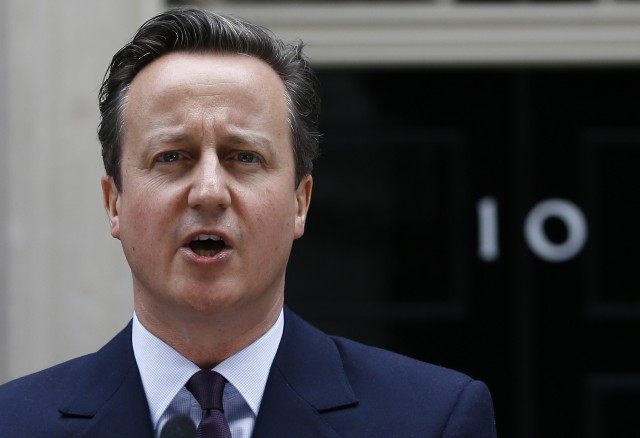David Cameron has ruled out withdrawing Britain from the European Convention on Human Rights, turning the promised repeal of Britain’s Human Rights Act into a mere smokescreen for quietly maintaining the status quo.
The Conservatives pledged to replace the Human Rights Act, which incorporates the Convention into British law, with a British Bill of Rights in a move that was designed to restore supremacy to British courts following a series of unpopular rulings from European judges in Strasbourg.
But efforts to fulfill the manifesto pledge have already led to infighting in the party, less than a month after they took office as a majority government. Justice Secretary Michael Gove and Home Secretary Theresa May are both in favour of full withdrawal from the Convention, arguing that it is the “only solution” for restoring supremacy to Britain’s law courts.
Mrs May has had first hand experience of the obscene rulings that Strasbourg judges have handed down, putting criminals’ and terrorists’ human rights above those of their victims. During the last Parliament, she gained a small victory in deporting the radical cleric Abu Qatada back to Jordan after more than a decade of legal wrangles with the Strasbourg court. During that time, Mr Qatada racked up a legal aid bill of more than half a million pounds, subsidised by British taxpayers, and even won a compensation payment from the British government through the Court of Human Rights.
Leading the charge for those who want Britain to remain within the Convention is the former Attorney General Dominic Grieve, who has argued that for Britain to withdraw would undermine her global standing when it comes to human rights. Last October he asked: “What message do we send to countries whose human rights we wish to improve when we are bent on undermining the international convention most respected in promoting them?”
Downing Street has now effectively come down on Mr Grieve’s side, taking withdrawing from the Convention off the table. A senior government source told The Telegraph: “Withdrawal is not going to happen. Michael Gove and Theresa May think it’s the only solution but David Cameron’s clear this is off the table.
“The British bill of rights could mitigate the worst excesses of the human rights act but it won’t change the fundamentals.”
Mr Cameron would still be able to maintain that he has kept his pledge as the Conservative manifesto was vague on the subject of membership of the Convention, merely promising to “make our own Supreme Court the ultimate arbiter of human rights matters in the UK,” alongside the more specific pledge of replacing the Human Rights Act with a Bill of Rights.
A Downing Street spokesman has consequently said: “The Government’s policy is as set out in the manifesto, and that is shared by Theresa May, the Prime Minister and indeed the whole cabinet.” The Telegraph reports that spokesmen for Mr Gove and Mrs May declined to comment.
However, a Bill of Rights is likely to have much the same content as the Human Rights Act. Critics point out that it’s not the wording of the law, but how it is interpreted in the courts that poses the problem.
Conservative MP Philip Davies said: “It is very disappointing. The European Court of Human Rights is full of pseudo judges, most of whom are political appointees.
“The convention has become a charter for illegal immigrants to avoid deportation and for criminals to pursue vexatious claims. I have no idea why we would want to stay part of that.”
The decision may be a taste of things to come as Mr Cameron heads into a period of renegotiation on Britain’s membership of the European Union ahead of a referendum on whether to remain within the Union. Those in favour of withdrawal fear that a thin veneer of superficial alterations will allow Cameron to falsely claim that meaningful reform has taken place.
Meanwhile, repeal of the Human Rights Act in favour of a Bill of Rights has been kicked into the long grass – for now. A consultation on the measure will begin in September.

COMMENTS
Please let us know if you're having issues with commenting.